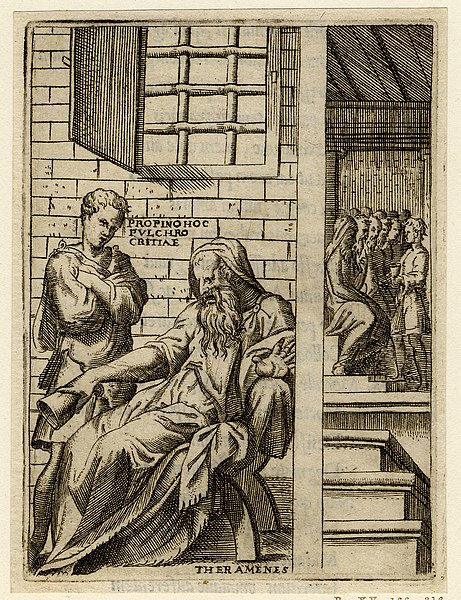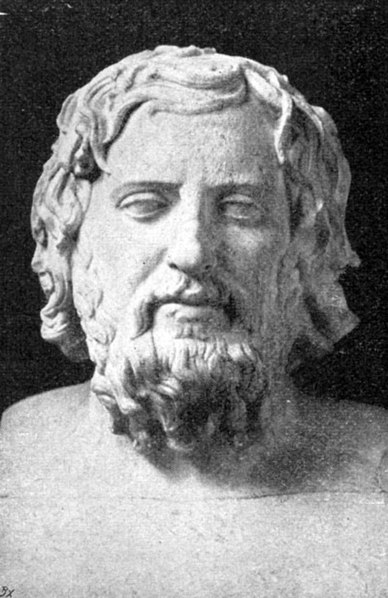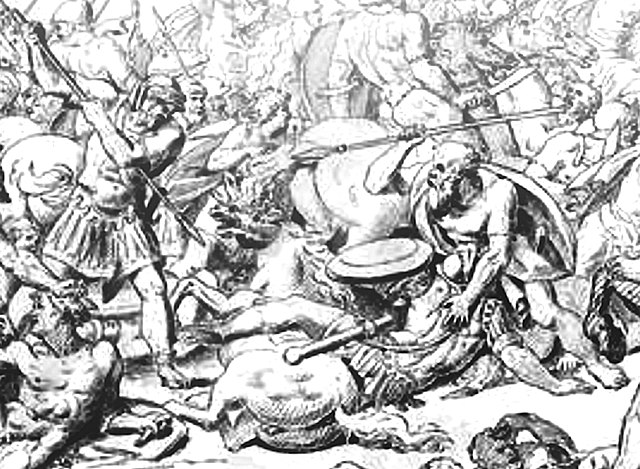Theramenes was an Athenian military leader and statesman, prominent in the final decade of the Peloponnesian War. He was active during the two periods of oligarchic government at Athens, the 400 and later the Thirty Tyrants, as well as in the trial of the generals who had commanded at Arginusae in 406 BC. A moderate oligarch, he often found himself caught between the democrats on the one hand and the extremist oligarchs on the other. Successful in replacing a narrow oligarchy with a broader one in 411 BC, he failed to achieve the same end in 404 BC, and was executed by the extremists whose policies he had opposed.
16th century engraving of Theramenes seated next to a young man emptying a flask.
Alcibiades, shown here in this detail of a 1776 painting by François-André Vincent, incited the oligarchic coup by promising Persian support to Athens if the democracy was overthrown.
An ancient Greek trireme. Twenty-five Athenian triremes were disabled or sunk at Arginusae, and Theramenes was detailed to rescue the survivors.
The historian Xenophon wrote a scathing account of Theramenes' actions after Arginusae, but portrayed his resistance to the Thirty Tyrants favorably.
Alcibiades was an Athenian statesman and general. The last of the Alcmaeonidae, he played a major role in the second half of the Peloponnesian War as a strategic advisor, military commander, and politician, but subsequently fell from prominence.
Alcibiades Being Taught by Socrates, by François-André Vincent (1776)
Jean-Baptiste Regnault: Socrates dragging Alcibiades from the Embrace of Sensual Pleasure (1791) (Louvre)
Battle of Potidaea (432 BC): Athenians against Corinthians (detail). Scene of Socrates saving Alcibiades. 18th-century engraving.
Jean-Léon Gérôme: Socrates seeking Alcibiades in the House of Aspasia (1861)








